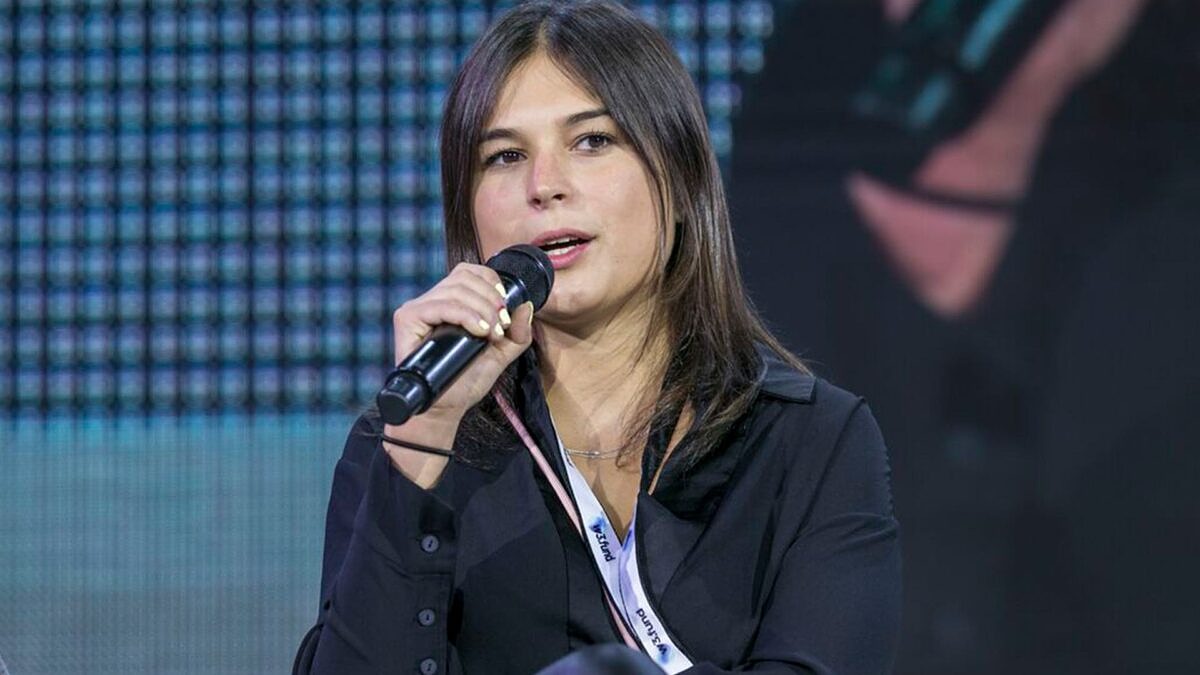w3.vision: Where does it go from here? Where does the Web3 community currently stand?
w3.vision was one of the highlights of DMEXCO 2022. The makers of the w3.fund succeeded in creating a playground for the illustrious Web3 community that was very well received. DMEXCO23 is already in the planning stages and there will be a w3.vision there again, too.

Therefore, we wanted to use this opportunity to speak with Vicktoria Klich. In this interview, she looks back on the first w3.vision, talks about current developments in Web3 topics, and explains what the Web3 community has to look forward to.
For English subtitles please watch the video directly on Youtube.
What were your personal highlights of w3.vision?
Vicktoria Klich: w3.vision was an unbelievable success for us personally. We had the entire German Web3 community in one place, and they all wanted to interact with one another and learn from each other. At the same time, we were also able to include many people who didn’t necessarily find these topics accessible before and inspire them to get to grips with them.
We were the head-turners at what was otherwise a fairly traditional business expo. I mean, we had a G-Class there, we gave away free beer. Many people ask, what is the actual connection to Web3 there? This is how you can make people aware of such topics!
What makes the Web3 community stand out?
Vicktoria Klich: The Web3 community is diverse and breaks out of all the standards. Most of them come from the Bitcoin-crypto ethos and have their own niche. And if we’re being honest: they’re all nerds. And I count myself as one of them. These are people who don’t necessarily care about the financial aspect of NFTs and crypto. Of course, many of them have earned money from it. But we did w3.Vision during a phase in which the market was very, very low and was hemorrhaging. And nevertheless there were still tons of people convinced by the technology and what you can do with it.
And it’s exactly these crazy people that you need, the people who’ll drive it forward and kick things off, to keep people’s attention in the future. I don’t know any know any community that’s so open and that has absolutely no interest at all in elbowing each other out of the way. At w3.Vision there were lots of people who all do kind of the same thing, but no one gave anyone the feeling of “okay, I need to be better than you.”
Quite the opposite – we’re currently in a phase where we all say: there’s enough room for everyone. It’s better if we learn from one another and grow together. It may be that that will change at some point, but the founding ethos of crypto is that it’s decentralized and open to all. And that also kind of takes root in the minds of the people who are working on it.
Where would you place Web3 and all of the topics related to it?
Vicktoria Klich: For me, revolution has to start with lots of chaos and lots of attention. And that happened last year. By now, just about everyone has heard of the classic NFT hype, the “rich path”. People earned tons of money with JPEGs and there were also a lot of negative associations that still resonate in the mainstream. But in my opinion, this is important. It’s attracted very, very many eyes, a lot of money, a lot of images into this space. It no longer only has this crypto association. You now have much more creativity in the space, you have topics like the metaverse, the technology is fundamentally more advanced, and it’s no longer just about decentralized payments, rather it’s about significantly more.
I’ve known about crypto for a little longer, but I only really had my first aha moment when I realized that digital art was really being sold for 960 million U.S. dollars, but the artist can participate in its resale over the long term. That was the aha moment for me when I understood smart contracts and the potential of NFTs for creators. And I still feel that way, even though the market is down. Despite that, the technologies still exist and people are not letting go of them because they believe in its long-term impact.
Also, you do have to admit: It’s not just the crypto market that’s down at the moment. We’re simply in a global economic crisis. You can project that onto very, very many areas. People always say “the bear market is a builders’ market” and I can really feel that very, very strongly for the very first time.
All the people that I talk to aren’t flipping NFTs anymore, like they might have done a year ago. Instead they’re building sustainable products in order to advance the technology further.
What does your vision look like? How are we going to live in ten years and what role will NFTs and Web3 play then?
Vicktoria Klich: Many will use other words for NFTs, such as “digital collectibles” or “digital stamps”. Words that don’t seem as off-putting and that you don’t immediately think they have anything to do with crypto. Many believe in the technology and that it’s the next step in the evolution of the Internet. So it’s almost less of a revolution, but more of an evolution.
I envision a world in which we’ll all use the blockchain as a new Internet layer. This gives you a lot more options and I’m convinced that we’ll have more freedom in deciding where to invest our resources.
Everything is becoming more digital, much more is automated, and [that] probably sounds a bit dystopian. But I see it as utopian instead that we will have the privilege to simply be able to express ourselves much more creatively because many processes will be implemented more efficiently.
Where does the negative image of “NFTs” and the “metaverse” come from?
Many, many people came into this space who wanted to make money very quickly. The interesting thing about blockchain is: everything is anonymous, you can quickly disappear with the money. So many hacks have happened, so many scams. A lot of people not familiar with the technology were just fundamentally screwed over.
Furthermore, there were very, very many companies who started to build metaverse strategies right away. That was the most annoying buzzword of 2021 for me because everyone just jumped on this thing without understanding it.
Now that the bubble has burst, there are still just as many companies still in the process of building a metaverse strategy. The great thing is that a lot more thought is being put into it. Starbucks is the best example for me: they simply took something that already existed – their loyalty program – and put it on the blockchain. They don’t communicate, “Hey, we’re Starbucks and we’re going into the Metaverse now,” they just say we have a new program and here’s what it does. So the focus is no longer on buzzwords, but on what’s possible.
I found the hype interesting, but I actually find the period right now much more exciting because everything is much more serious than a year ago.
What’s next for the w3.fund? What do you have planned for the future?
Vicktoria Klich: We’re currently working hard on investing in Web3 startups. Right now, very many people are starting to build interesting things, from many different areas. And now – both through the w3.vision and our NFT fund, as well as our content over the past year – we have built a certain standing for ourselves. So it now seems natural for us to position ourselves as a venture fund. Aside from startups, we’re also continuing to invest in NFTs, just a little bit differently.
2023’s w3.vision is of course already in the planning stages. It will be a bit bigger, but nevertheless we want to keep the authenticity and the vibe that we sparked in people. Bringing together the Web3 communities from the German-speaking world is simply an unbelievable event, both for us as well as for the entire DACH community, since so much takes place in the English-speaking world or in the USA itself. And to be leading the way in Germany there is very, very cool.
Of course, we have now everything to make Web3 really accessible to the masses, without forcing it on people, but simply showing them: “Hey, really, really cool things are actually happening here at the moment and that’s what we’re working on now.”





